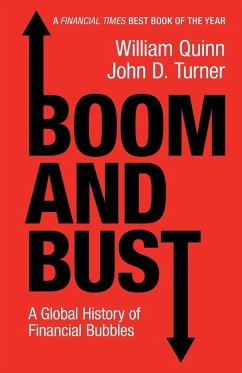Why do stock and housing markets sometimes experience amazing booms followed by massive busts and why is this happening more and more frequently? In order to answer these questions, William Quinn and John D. Turner take us on a riveting ride through the history of financial bubbles, visiting, among other places, Paris and London in 1720, Latin America in the 1820s, Melbourne in the 1880s, New York in the 1920s, Tokyo in the 1980s, Silicon Valley in the 1990s and Shanghai in the 2000s. As they do so, they help us understand why bubbles happen, and why some have catastrophic economic, social and political consequences whilst others have actually benefited society. They reveal that bubbles start when investors and speculators react to new technology or political initiatives, showing that our ability to predict future bubbles will ultimately come down to being able to predict these sparks.
'Where do financial bubbles come from? Can - and should - policy makers always try to stop them? Can investors avoid them? Quinn and Turner take us on an informative, engaging tour of the last three hundred years of bubbles and, using history as their guide, provide intriguing answers.' Richard S. Grossman, author of WRONG: Nine Economic Policy Disasters and What We Can Learn From Them









